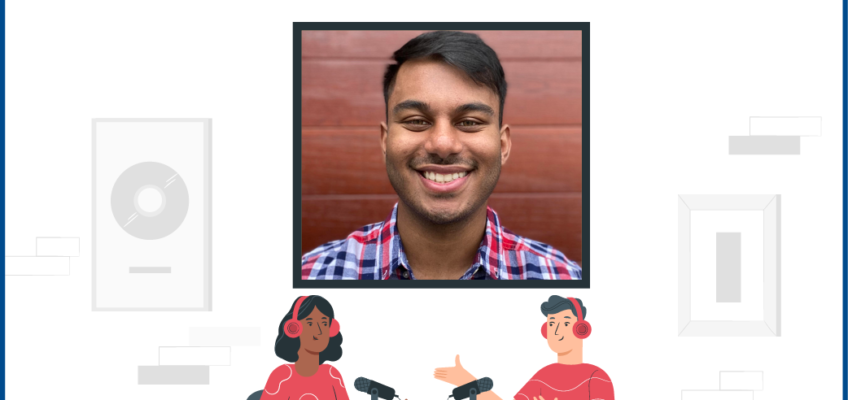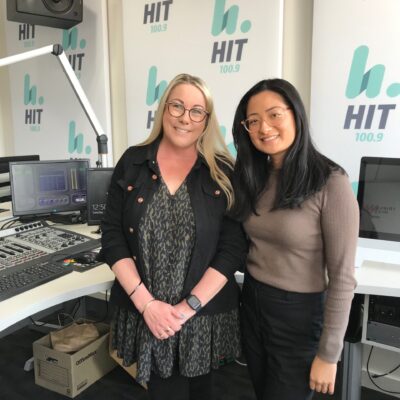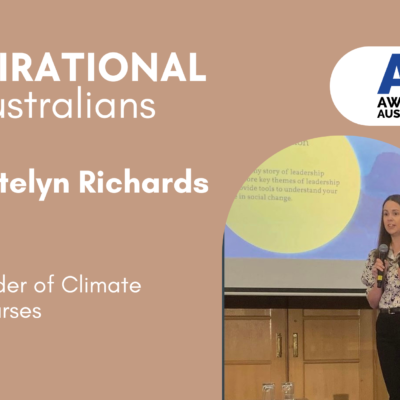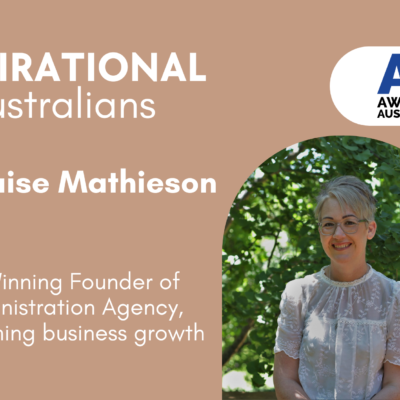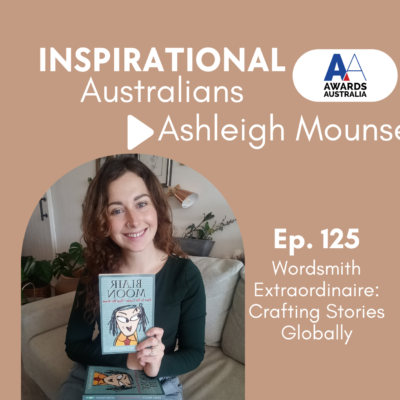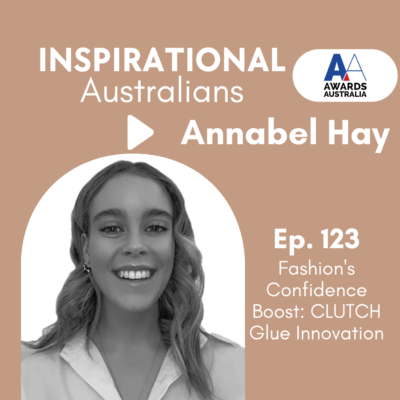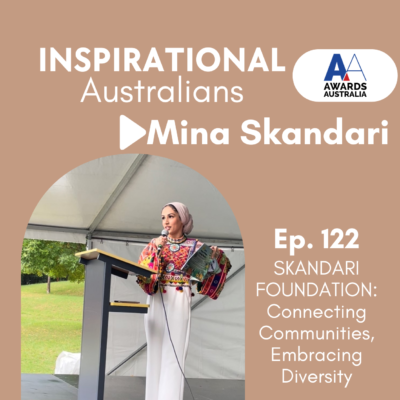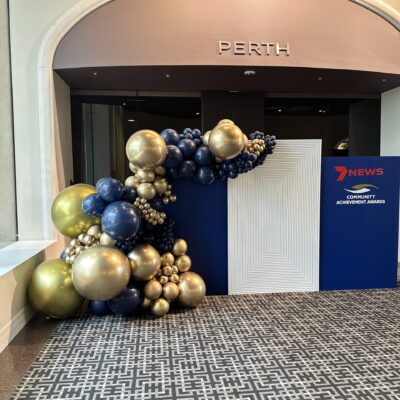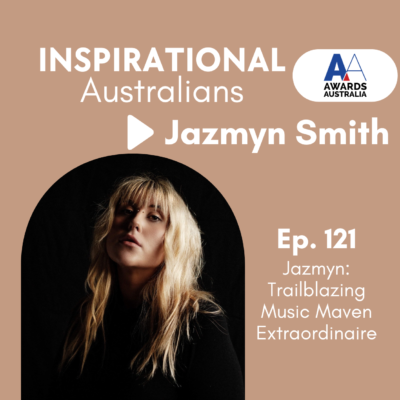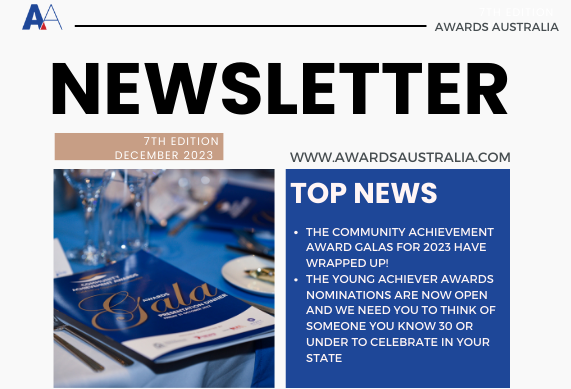>
In this week’s episode, Geoff is talking to Jahin Tanvir who was Finalist in the 2021 7NEWS Young Achiever Awards for NSW/ACT.
Jahin Tanvir is passionately action-oriented. Jahin was selected as one of ten “Young Leaders” in Australia and represented ACT at the Consumers Health Forum; which helped raise awareness of youth health issues and develop resources to help the youth better navigate the healthcare system. In 2021, Jahin received the 2021 Young Canberra Citizen of the Year in Individual Community Service. He volunteers for the Wellbeing Health and Youth Commission, where he co-designs and sets research agendas for teenagers. He is a founding member of the Health Literacy Advisory Council at Youth Action NSW and Young Advocates Collective. He is a Youth Ambassador for the Multicultural Youth Affairs Network and a volunteer for ACT at Oaktree and Canberra Blind Society.
In this episode:
- We hear how committed Jahin is to making a difference to so many people with his many volunteering roles
- Something we wouldn’t have know about Jahin? He combines his love of sport and the spoken word – listening to poetry whilst practising in the cricket nets!
- Jahin’s motto is “Action kills Fear”
Links
Connect with Jahin on LinkedIn
Connect with Jahin on Instagram
Want to know how to Rate and Review a podcast, see this article
Follow us on our Inspirational.Australians Instagram Page
Want to nominate someone? (It can take as little as 2 minutes to recognise someone making a difference)
Like some more information on Corporate Partnership?
Transcript
Welcome to the inspirational australian’s podcast, where we check to people making a difference in their communities and in the lives of others. And here is your host for today. Jeff griffin. Welcome to the inspirational australian’s podcast stories of inspiring achievements and community contribution. Every week we will celebrate an award program category, winner or finalists. We hope you’ll be inspired and encouraged to know that australia is in good hands, together with our corporate partners and not for profit partners, awards, australia, showcase ordinary people from right across australia. Doing extraordinary things. If you enjoy hearing the stories about inspirational australians, please subscribe. Write us and review us. We really appreciate it. My guest today is really passionate about youth health issues, youth empowerment, community engagement, and social inclusion. Jane tandia was a finalist in this year’s freemason’s of new south wales act, community service award part of the seven years. Young achiever, what’s very significant contribution to making a difference in the health field. It’s such an honor to have you on the podcast today. Welcome. Thank you so much for having me. Being in the health industry is very topical over the last 13 months, isn’t it? When people are suffering quite significantly, mentally, and physically, certainly very evident and very evident, certainly at the awards night when you were very passionate about youth health. What initially led you in the direction of youth health? Absolutely. I think from a very young age, i’ve always been very passionate and inclined towards the health Care system. The way I was raised as a migrant moving to australia, my parents have always valued the health Care system, gps allied health centres. And from that in the way that, that was perceived, i always had this desire to be a part of it. And to be an individual who provides that patient centered care. I was very fascinated about how you could go somewhere and somebody would use their knowledge and expertise to really diagnose you and provide you with treatment. And so I think that has been something that has pushed through the years that I’ve grown up in and when it comes to youth health, i think as a young person of color growing up in Australia, there’s a lot of issues that are really unheard of in communities, a lot of young people who have issues such as mental health and just overall chronic illnesses which aren’t really being taken into consideration. We have this one size fits all mentality. And I think seeing that from a very young age, i was always like, I want to do something that really facilitates that discussion and creates productive dialogue in that degree so that I can possibly, hopefully, potentially create change in that sphere as well. Yeah, a very commendable and so, so important as we say in these current times that we’re faced with you were selected as one of 10 young leaders in Australia representing a victim of course of consumers health forum. What did that involve, and what was the aim of the forum? So that involved where essentially 10 young ladies as that was the title from around australia were chosen to come together to form a collective group that would advocate and elevate the needs of young people when it came to australia’s health Care system. So essentially we work with different primary health networks, the Department of Health and writing senate inquiries, creating events, bringing different young people, not only from metro cities, but also regional rural areas. And just bringing that together into one place. I feel like when we need to have discussion, we need to have all these diverse perspectives into one place. And what consumers health forum does is that it brings together all of our different perspectives and networks and the influences that we’ve been able to gather over the years and really bring us together and write recommendations for the government. For instance, i think that was the main thing that we focused on in 2020. We wrote a lot of senate inquiries about the vaccine rollout about young people’s, the impact of young people and how kurban has come into that price discrimination have increased quite exponentially when it came to covid homelessness. So these are all topics that we really covid and brought all our diverse perspectives together. And as someone representing the even though it’s the smallest area or region compared to the other states, i feel like it is still very crucial because obviously it’s the Capital. But also there’s a lot of young people and diverse perspectives from canberra and great with these health issues aren’t really being talked about like for instance, when it comes to mental health in multicultural communities. That’s an aspect that I don’t think is spoken about enough as it should be because it’s just so many people suffering in silence taboos stigmas these things pushing people back and really making them suffer. So that was an element that I brought into the fray as a migrant. So I think at the end of the day is doing what should be done in bringing diverse perspectives together in one communal hub. Yeah, well I think sometimes the smaller the community, the harder it is to feel open to talk about our health issues and so on. We can feel the pressure of all our peers around us and the smaller the environment, the more we know people feel that people hear our story and feel like that every individual is worthy and important. Doesn’t matter how big or small community. So earlier this year you also received the young campus citizen of the individual community service. That must have been a real thrill. And how is that benefited you? Do you think that was obviously a massive honor to have received something of that accolade at such a young age? But I think for me it was just I just took that as a testament of what I’m doing is in the right direction. What I’m doing, I’m on a pathway that I set out for myself when I first moved to canberra. And it’s something that I feel like it’s just more than a recognition. It was more so. It was just like an acknowledgement that what I was doing was right. What I was doing was making an impact. So obviously it was like, you mentioned quite thrilling to you and be nominated in first place for an award of that caliber but you know, it just really made me feel like coming into canberra as a naive, 18 year old moving to a university. Not knowing anyone in the city and to be able to create a network and create an impact that I was hoping for and was had the ambition for. It was just a testament that hard work does pay off being persevere and putting all your effort determination into one sector or passion project or area of you know where you want to improve. I think it does pay off. So I think that was just a really big indication to me that this is working and this is something I plan to pursue as I get older parallels to my other studies and projects and passions as well. So I agree with the studies and don’t count your 30 optometry student at canberra. No. Yeah. Yeah. Well it all fits nicely with your your passion for your health isn’t health going well. Yeah. Is quite content heavy. I think that was the main thing. Trying to balance everything has been the greatest challenge, but we’re in the third year now. So slowly getting through how many years. It’s a total of five years. Five. Are you one you’ve been in sydney for work and of course you got stuck in lockdown in sydney. That must have made it very difficult for you as well. Yeah, I think the whole idea of moving back and forth between sydney and canberra. It is tiring, but when you have things, in fact is external factors like lockdown, it just makes life a little more difficult, but we have to accept it and adapt and move on. So trying to do the best I can and our hearts certainly were with everybody in New south wales for the significant issues. covid issues are being priced pain from victoria. We can certainly appreciate and understand how difficult lockdown is so hard, certainly with there with everyone. And it’s a terrible tragedy. How so many lives are affected by health and financial and mental health perspective. And you’re also a volunteer for the wellbeing health and youth commission. What’s the aim of the commission and what’s your role? So similar to the chf probe, the wellbeing health and youth commission essentially brings together again 20 young people who have a passion for health research or medical research. And really creates the bridge between the researchers and medical research or health research that’s been taking place at universities and how to make it accessible for young people. So oftentimes, when we see research in the newspaper, for instance, or articles, it’s very confusing. There’s a lot of jargon, there’s a lot of research terms that anybody trying to gain more knowledge on that subject will probably struggle to understand. And especially young people who are obviously you know, care about their health Care, about improving the health and well-being. It’s quite a struggle and it’s a gap that is increasing every year when more research is being put out. So essentially, well-being health and youth commission tries to mitigate that gap of the lack of understanding and really say, hey, these are young people. Can we get them part of the process? Can we get them to designing these research methods or the research that’s been taking place so that they can take that research, translate it in a way that anybody can understand and really increase the importance of research done by universities on these quite valuable topics such as covid young people’s health, chronic illness, mental health. So I think that’s volunteering for that project as being something I find quite invaluable. It was actually one of the first few projects that I got involved with once I left high School and just seeing how young people are able to change research agendas and just design and really say, hey, this is what I think should be changed. So it becomes more accessible and seeing researchers, professors from universities actually taking to that, you know, that mindset and take that into consideration and really accommodate for young people and also the general public. Know, I think that was insanely rewarding to say, and I think more research should include young people and also diverse people so that we can communicate what’s being researched. So that again, we can have like a collective benefit from all of these things that are being propagated. Because I think that research is what progressive society progresses, the knowledge and really challenges the obstacles that we’re going through. So creating that design and creating that bridge is essential. And I think that’s something we’re being told the commission is doing very powerful stuff. Do you think there are too many young people out in the community who think that health is not going to be an issue for them? They’re a little bit invincible. Yeah, I think in every community you’ll find some people who are more conscious about their health. Whereas you’ll find other groups of people or young people who aren’t as conscious. But I think it just comes down to the lack of Education. If you’ve grown up in an environment where health is the priority and you’re always told to improve and create strategies to benefit your health, you have those individuals influence that community, influence the groups of friends circles and become more conscious. Whereas if you don’t have an environment or other fortunate enough to have an environment that prioritized health as a hallmark in life, you’ll always have individuals growing up as they become older, from a young young age. Not really giving enough credit to health. So at the end of that becomes education and raising more awareness, rather than saying, you know, if it is something that’s more inherent. So I think the environment plays a massive factor in that. You’re also a founding member of the health literacy advisory council. u.s. New south wales and also of course a young advocates collective also on the young advocates collective. Tell us more about them. Yeah, so I think that all of these elements, such as a health literacy advisory council and the young advocates collective all align with the goal that I have when it comes to being involved in youth organizations where young people are given the capacity to create change and create formidable change, especially with the Health literacy advisory council that was created in twenty twenty you know, in the middle of a lockdown in the middle of it. And you’re really allowed us to increase health literacy in different communities and really put us in the driving seat of saying these are the communities that are being affected. This is my experience, is my lived experience of being in these communities. What can we do to change? I think having these voices heard through different events through a different online meetings. And I feel like we’ve had monthly meetings, but also with the amount of passion that these groups bring. We’ve had like fortnightly meetings that we wasn’t originally planned for these groups. So just seeing that passion through from the people that are involved when it comes to health literacy. That young advocates collective. A lot of it comes from youth empowerment, getting young people participating in the political process as well. So just that combination of, you know, passionate young people and just being around them and creating change that’s very evident in an environment has been something I find immensely rewarding because we can see that what we’re doing, what we’re trying to do with each of these meetings are actually creating change and we’re seeing those ripple effects that where their actions are creating and I think that’s what sustains a lot of young people in this advocacy sector, because we’re seeing the results of what of what we’re saying or what we’re working towards. And I think that’s the beauty of these councils and collectives. You know, I imagine everybody that comes together for the collective wisdom today said is opportunities. That would be very, very keen to put forward their views and their ideas to help the overall I guess collective ideas about how to go about doing things better. We’ve got a range of passions and I are also excited for the multicultural youth affairs network. talks about clearly your passion for social inclusion and social justice about how you get more involved in what’s, what’s on your agenda in terms of what you would like to see done better. So I think my, my passion for social inclusion really comes from my own lived experience. Obviously as a first generation migrant, as a young person of color moving to australia in tend to be going through so many different obstacles, experiences of racism and discrimination. And then as you get older, the imposter syndrome, in my good enough, do I have an identity? So all these factors, whilst growing up has always been on my mind. And I think when it comes to inclusion, as I get older, as I become an early career professional and going through those stages of having your career. You know, there are many things that I notice already in university, also hearing from other multicultural communities that there is a massive gap that still exists from young people of color or people of color from actually feeling like they fit in feeling like they contribute to feeling that they’re part of an organization. So I think as part of multiculturalism, that work and other multicultural organizations, my ambition has always been to just push through that agenda that we do have an identity. That even though we come from a different country, that we have different skin color, we may speak a different language at home. We still have the capacity to contribute, make change, and really catalyze a ripple effect from what we’re passionate about. And for instance, with the youth ambassador program at my they’re really focused on giving us a voice, sharing opportunities. I’ve had so many media opportunities, speaking of opportunities for my end through the recommendations at different conferences at different universities. So I think it really being part of these communities really gives me that platform that otherwise I probably wouldn’t be able to find on my own. And having a body like multicultural affairs network, really gives me that opportunity to say this is what I’m passionate about. This is what I have to say about it and growth through that improved public speaking, for instance, improved how I communicate with diverse perspectives, how I improve empathy. When it comes to these different individuals. Even though I am a first generation migrant, there is still a lot for me to learn as well because my perspectives are very different from other perspectives as well, from people that move to australia. So learning from other people having that community, having that place to just be myself and really find my identity. I think that’s a key element. And the reason I continue to volunteer for multicultural organizations parallel to everything. A multicultural youth. play a massive role in our communities and are so important. I think back to the South australian wool program each year where we have multicultural youth aside, who sponsor an award. And I love love, love. hearing the stories of people who come to australia and integrate. I have a passion to make a difference for their own communities, but also to integrate into australian culture and way of life and to really make a difference. I love hearing and I love hearing that people embrace their own culture. They can do that, of course, that they also embrace our new way of life. How often you hear how thankful they are for australia and what they’ve given. And I wanted to get in and make a difference and bring other people from their cultures and cultures into the australian way of life, so that I have the best opportunity opportunities that are out there for them. I get horrified and saddened when I think that there are still people who discriminate poorly and that people who come from an ethnic background feel like impostors. I think that and I think that feeling probably comes from that bullying and discrimination. And I just find that terribly, terribly sad. In twenty twenty one that we still have to face those issues. I think what you’re doing for young people and old people is so powerful both in the health and multicultural. I spoke to you. I think it’s absolutely brilliant. You’re doing great work and anybody and everybody in your space contribute far more than you can know. Now you clearly don’t have time to sleep because you also volunteer for oak tree and the canberra lion society. And I guess there’s a link with your studies for the blind society, but what led you to these fantastic organisations and also make a contribution as a little bit left to fill of the things that we’ve talked about so far. Yeah. Well, first of all, sleep is something my mom continuously tells me about to improve. That’s a massive work in progress. But I think we are actually, again being a youth organization. The reason I really was pushed towards an organization like this is because again, it’s youth led. It’s completely youth that everybody’s under twenty five. I believe . So having that humility, where I can really say this is what I believe in this is what I, these are my values, this is what’s affecting young people. Let’s work together and I think that communal collective struggle that is found in organizations like my own oak tree. It really just feels like home to degrade because when I move the camera, i didn’t know anyone. I had no family, no friends, no social media links or references. So having these other organizations to really, you know, find my feet, for instance, as an 18 year old. It really allowed me to just network have things to resonate with other young people and really build quite long lasting friendships and bonds. And then similar with the camera blind society, like you mentioned, it aligns with my passion in health Care sector, but also the service. While studying optometry, so I feel like being able to do a few hours to the people that are vulnerable with the eye care is something I feel is my responsibility if I want to become a health Care professional as an optometrist, i feel like it is my responsibility to really go out there and really see the patients rather than focusing so much on the books and the clinical studies, who are the people I will be treating hopefully and getting that experience and insight. So that’s my main motivation as part of society. I think lucky clients or customers or patients, whatever you call them that come and visit you when you’re qualified and have your own practice or wherever you’re working. Because you certainly and really care. So I take my hat off to you and acknowledge your enthusiasm and passion. Just going back to when you were nominated for the seven year old’s. What was your initial reaction to being nominated? Well, I was completely blown away. I was very unexpected to get that email just to just to be nominated in the first place I heard about the seven achiever awards. I think a lot of middle class, but at that time we were in lockdown. It was just like very focused on my studies and all these projects, but to get the email that I’ve been nominated and then get the email a few weeks later that was a finalist and to have all these photos and you know, all these things. It’s just, it was just again, more so than recognition. It was an acknowledgement that I felt more fulfilled because I felt like I was making an impact. Know, seeing people recognize your work is obviously amazing, but to just know deep down that these awards of these invitations really say that what you’re doing is right, you’re on the right path. It just, it really does get me. And so it’s obviously very surreal. But I felt honored, humbled by it, and people like yourself don’t do what you do for recognition. Same time that validation is really important to understand that we are appreciated. And morsi, as you say, what we’re doing is important. And we are on the right track. People respect what we’re doing and appreciate it. So I think you’re right. Uh, haven’t made the final decision on the freemasons of new south wales. I say to your ward. What were the highlights of the event itself to remember? Well, I think as soon as I left the event, the main highlight that I was telling my friends and my kids about was the conversations that I had, especially with the other young ladies. Everybody is obviously so young and to have done so many things and been nominated, being a finalist, being winners, you know, just being able to go around to different tables and even taking photos just to say, hey, this is my story, what’s yours? And just to have that two, three minute chat, even if it’s just introducing each other, I think that was phenomenal to just have a and an event or a hug when we can just go and talk to each other about the struggles and the challenges that we had but then evidently how we were able to overcome that through our different organizations, the organizations, projects and different initiatives. It really just made me feel like that I wasn’t alone, because a lot of the times when you’re involved in so many things, especially as a young person when stereotypically, your focus has always been to have fun and enjoy you. It can be quite isolating because you feel like am I doing enough? Am I the only person he is it is what I’m doing is enough for myself and the people around me. And just to have young people there to just have a conversation, a discussion, a dialogue with I think was just the highlight of my year essentially. And I hope that we can have more events like this and just meet all these other amazing young people, just all the journeys we’ve connected with a lot of young people after that on linkedin, for instance. And just seeing the journeys every month is just fantastic. And I can’t wait to see where everybody goes from here. And there’s so much power and energy in the room, as you say, with so many young people coming together from across industries, all walks of life, all with a common cause to make a difference in the world. So that’s, it’s really great to hear. And a big shout out, a shout out to freemason’s to steven the general manager. And everybody at freemason’s that we really are an extraordinary organization. And the whole mandate is to make people better versions of themselves and make a difference. I’m very thankful for them to sponsor the community service award to keep people like yourself up to be and it’s a great validation for all those that you’re involved with as well. Not just for you, but the other finalist for everybody, for the parents, colleagues, everybody. And we also think the premier who’s terrific supporter of the awards. She has been instrumental in providing funding to help show the awards continue. So that’s a tough time for the government to get very thankful to them as well for the award search nominations got very, very soon. And I’d like to encourage all of our listeners to nominate someone they know because they like to him can really benefit from that validation of nominating someone. And to nominate someone gives you a real sense of pride and worth as well. If any of our listeners would like to find out how to nominate someone or even more about a sponsor opportunities and drop me an email that we’ll just try your comments to the left and we’ll just try to dot com or check it out. I would just try to dot com website. So what’s a fun fact that we might not know about you? Well, fun facts are always a question that I’ve always dreaded because it’s just what’s fun about me. I don’t know, actually I think parallel to all these things. That’s what’s so sports and it’s something that I’ve always liked but also something I think is we have almost a massive poetry nerd. So I love poetry. And oftentimes i like to connect by things . So for instance, when I’m at the gym for instance, i’m listening to spoken word. When I’m in the cricket nets, for instance, i love playing poetry just to get into that zone. And I love you find that way. But I think that might be a bit of a fun fact because it’s just, it’s just something that I feel like it’s just for myself to combine these two completely. completely opposite dynamics, but really bring them together in that sense. So I’m trying to get a picture here. You’re in the nets, you’ve got your helmet on your earphones in. You’re about to face, all sorts of bounces and all sorts of things. And you’re listening to poetry. It keeps me at peace rather than having that nerve of just playing music loudly and it keeps me in one headspace and I think more people should try it. Very cool. Yeah, absolutely. And I have to give it a go. What type of poetry is there? A specific type of I just anything to be spoken with. So a lot of the things that I’m very passionate about is identity. So I love hearing about identity, people’s cultures that whole journey through different cultures and the struggles and a lot of beautiful spoken word. individuals who are very accessible and spotify, so I definitely recommend for anybody who’s willing to try something a bit out of their comfort zone. Very cool. They will have to give it a go when we’re facing that, the bouncer, or take a spicket over the top of someone in footie or attempt to get jumped on in a rugby scrum or whatever it is, recite your poetry. So what’s the driving passions? That makes him tick. Well, I think my driving passion from a very young age has always been as again I keep coming back to this, but it’s always been that identity as somebody who’s moved to australia as somebody who’s always looked different, spoken differently. It’s always been something in me that made me want to become a role model for other kids, other refugee kids in other young people of color to say that hey, if you can do it, why can’t I? What can I do better than him? So I think just having that position where I’m able to create change would also show people younger than me or people of my philippines. That No matter your identity, no matter the color of your skin, no matter the challenges that you’ve been through, you still have the capacity to make change. It’s all about creating actions and ensuring that your values are reflected from your actions. And again, that’s something that has driven me throughout high School and something that continue to drive me as I make my way through university. And I hope that will continue to drive me as I make my way throughout life and my career as well. Well said, it must be times when you’re running out of energy and it all gets too much. You can’t think of any poetry you know feeling like how do you bounce back and recharge yourself? Well, I believe my main path that I’ve taken when it came to reenergizing myself and recharging has always been having a good support system and my friends and my family, people closest to me. I feel like they’re the people that are most honest with me. They’re never going to say something where it’s like, just for the sake of it or to make me happy, they’ll say everything truthfully, as I see it. So just going back to them, spending time with friends, you going going out somewhere and watching a movie. I think social that social aspect or just being vulnerable with people I think is something that always helps me bounce back, even if it’s for a few hours on a Friday night. It really does help. But I think more and more people should invest into having a very good support system because I feel like it’s invaluable and meeting people who can resonate with you and actually listen to you. But also on the occasion just have fun. Just have mindless fun. I think it’s just something I find very valuable and just keeps me energized. And like you said, be able to reset myself as well. And I think that’s very, very valuable. It’s something we need something or someone certainly a support network. If there is no one there at that particular time, find something that helps take you away from whatever is causing you stress or grief or whatever it is. All those files is always lifelong and other organizations that are available to want to listen and that’s what they’re there for. And very happy, keen to help should we need to talk to someone who is talking to someone a few weeks ago. And I was saying to them the reset is having a hot shower or having a shower because it’s just an opportunity for them to say, well this is it, I’m resetting. I enjoy the moment I have a chance to reflect and think whatever it is for us to do that for our mental health. So what’s next for him? Well, I think what’s next? I don’t really like to think too much into into the future, especially with twenty twenty. What it’s showing that No matter how much you play, no matter how much you schedule, there will always be external factors that really hinder your progress. So I think at the moment it’s just taking every day as it comes, continue to work with these organizations that have given me so much and so that I can continue to give back to my community and hopefully continue to make an impact . Let me see when they graduate and become a health Care professional, but also aim to not only be stuck in that mindset of that. This is just my occupation. This is what I’m going to do with the rest of my life, but also continue the culture of, you know, I want to do more than just what’s expected, what’s expected of a nine to five career profession. I want to continue doing community work, continue speaking to different audiences, really and show that you are capable of more than just your day job. And I think that’s, that’s a culture that I’m hoping to continue. You get to and really hope to flourish and teach other young people that it is possible no matter where you come from. It is possible if you just put into words towards definitely you’ve already given us plenty. But do you have any other words of wisdom or some advice for our listeners? I think the one phrase that I think I’ve mentioned in this podcast episode as well, and I have it written on my wall as well on that side is action. You know, we always overthink things before we do something, we always overthink getting out of our comfort zone. We always fear everything. And we have disconnected ourselves with other people. But what I’ve realized is, instead of having that conversation this negative, so talk just actually doing and acting on your passions and what you plan to do. It really takes all that fear away. And it’s, it’s quite cathartic, cathartic where it’s like, you feel like you can’t do it. But once you actually start doing it, you’re part of the process. Everything just comes together. And so I think that’s something I’d love to leave the listeners with that action does cufi. We have so many thoughts, but I think we just translate that into action and really act on our passion, that ambition, that our goals, eventually everything does come to a place. It’s just about taking that first step. One hundred percent. That’s fantastic advice. One step at a time is so important. You can’t write because we do, we get caught up in the big picture and how am I going to get there? When you write, it’s not that hard. If we just step out one step after the other. I of that one many times when people said hitting around the country, i’m very blessed to be able to travel around the country every year to all of you nights, meeting extraordinary people. But through the judging process. And then of course that in person, it’s not. What’s the, what’s the one thing that I see in young people that stands out to me is the question i’m asking. I think it’s the lack of fear. It’s the ability to trade, where angels fear to tread, and in other words, not to worry about failure, but to have go to see the need for change or the need to achieve something and to have it doing it. We learn as we get older, to fear failure. We’re constantly told by people, you can’t do that, then I’ll never work. That won’t happen. But what lessons about that or whatever it is? I think there’s a lesson there for all of us, No matter what our age to be brave. And step out. A famous marketing guru by the name of mccarthy teaches ready, fire. aim is never going to be perfect. Get to a point or do your homework. And step out a situation where we can help listeners connect with you online or get involved in some things that you’re doing should they wish? Well, I think the first place could be linkedin. If you would like to connect or send a message about how to get involved with all of these organizations, you can definitely search my name up on linkedin. My name is quite unusual, so you wouldn’t be confused with anyone else. So feel free to connect or just send a message via linkedin. Other than that, you can find on social media. Again, my name, I usually say won’t be difficult to do for you to just send it, send an email, send a message if you would like to get involved with any of these organizations that we spoke about or just have a chat. I love meeting new people, like you mentioned, conversation is something that really powers me up. So if you have any interest from any of the listeners, please feel free to reach out. Perfect. Well, it’s been an absolute pleasure to have you on the podcast today. An absolute inspiration powerhouse. Thanks so much for sharing some of your story with us tonight. Thank you so much for having me. It was a pleasure. Well, I hope everybody listening has enjoyed hearing chaykin story today. And to next week, please remember to be kind and to give back and make a difference. I hope you enjoyed today’s interview as much as I have. We would love you to subscribe to our podcast, that you won’t miss an episode showing us each week as we talk with ordinary australians. achieving extraordinary things. Did you know that awards australia is a family owned business that proudly makes a difference in the lives of those that make a difference for others? And we thank our corporate not for profit partners to making award programs possible to, you know, someone that’s making a difference or maybe a business might like to sponsor an award. Contact us through our instagram page, inspirational dot australians will head to our website. awards australia dot com. Would be great if you could share this site with your network. Because who doesn’t like a good news story, and please write and review us. We would really love to hear your thoughts until next week. Stay safe and remember together we make a difference. Thanks for joining us today from the inspirational australian’s podcast. We hope you enjoyed listening and have been inspired by ordinary australians achieving extraordinary things. So it’s goodbye for another week. Remember together we make a difference.


